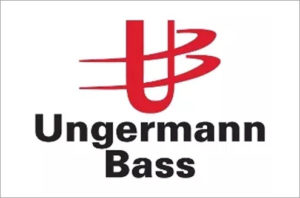
Date: 07/10/1986
On May 8, 1986, Ungermann-Bass became the 18th company to register their domain ub.comUngermann-Bass, also known as UB and UB Networks, was a computer networking company in the 1980s to 1990s. Located in Santa Clara, California, in Silicon Valley, UB was the first large networking company independent of any computer manufacturer. UB was founded by Ralph Ungermann and Charlie Bass. John Davidson, vice president of engineering, was one of the creators of NCP, the transport protocol of the ARPANET before TCP. UB specialized in large enterprise networks connecting computer systems and devices from multiple vendors, which was unusual in the 1980s. At that time most network equipment came from computer manufacturers and usually used only protocols compatible with that one manufacturer’s computer systems, such as IBM’s SNA or DEC’s DECNet. Many UB products initially used the XNS protocol suite, including the flagship ‘Net/One, and later transitioned to TCP/IP as it became an industry standard in the late 1980s.
UB specialized in large enterprise networks connecting computer systems and devices from multiple vendors, which was unusual in the 1980s. At that time most network equipment came from computer manufacturers and usually used only protocols compatible with that one manufacturer’s computer systems, such as IBM’s SNA or DEC’s DECNet. Many UB products initially used the XNS protocol suite, including the flagship ‘Net/One, and later transitioned to TCP/IP as it became an industry standard in the late 1980s. UB marketed a broadband (in the original technical sense) version of Ethernet known as 10BROAD36 in the mid 1980s. It was generally seen as hard to install.[6] UB was one of the first network manufacturers to sell equipment that implemented Ethernet over twisted pair wiring. UB’s AccessOne product line initially used the pre-standard StarLAN and, when it became standard, 10BASE-T.
In 1992, Ungermann Bass engineering in Andover, Mass produced the first Virtual Private Network. It was marketed as a “Virtual Network Architecture”. The product’s implementation utilized UB Ethernet switches, which were modified to add metadata to every packet which indicated which VPN originated the packet. Specialized segmentation and reassembly, which were compatible with Ethernet’s spanning tree algorithm, was implemented in each switch to support jumbo packets. While this product was not successful, this technology was transfered to Cisco when UB was broken up a few years later. Cisco subsequently offered the first successful commercial VPN which included “tunneling” ISO layer 2 VPN LAN packets through layer 3 to interconnect two LANS via Cisco routers.
UB marketed a broadband (in the original technical sense) version of Ethernet known as 10BROAD36 in the mid 1980s. It was generally seen as hard to install. UB was one of the first network manufacturers to sell equipment that implemented Ethernet over twisted pair wiring. UB’s AccessOne product line initially used the pre-standard StarLAN and, when it became standard, 10BASE-T. In 1992, Ungermann Bass engineering in Andover, Mass produced the first Virtual Private Network. It was marketed as a “Virtual Network Architecture”. The product’s implementation utilized UB Ethernet switches, which were modified to add metadata to every packet which indicated which VPN originated the packet. Specialized segmentation and reassembly, which were compatible with Ethernet’s spanning tree algorithm, was implemented in each switch to support jumbo packets. While this product was not successful, this technology was transfered to Cisco when UB was broken up a few years later. Cisco subsequently offered the first successful commercial VPN which included “tunneling” ISO layer 2 VPN LAN packets through layer 3 to interconnect two LANS via Cisco routers.
UB went public in 1983. It was bought by Tandem Computers in 1988. UB was sold in 1997 by Tandem to Newbridge Networks. Over the next several months, Newbridge laid off the bulk of the Ungermann-Bass employees, and closed the doors of the Santa Clara operation. Newbridge was later acquired by Alcatel, a French telecommunications company.